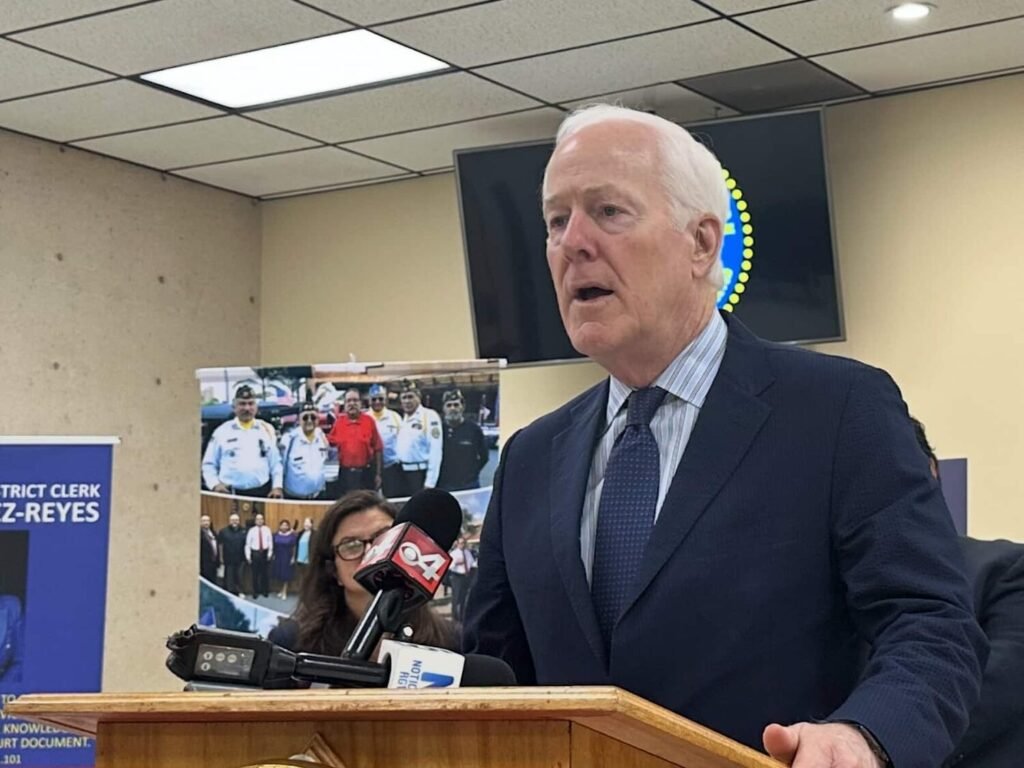The Controversy Surrounding the “One Big Beautiful Bill Act”
Introduction
The proposed One Big Beautiful Bill Act has sparked significant discussion and controversy across South Texas. While some leaders, including U.S. Senator John Cornyn, have expressed their support for the bill, numerous local organizations and lawmakers have voiced strong opposition, emphasizing the negative impacts it may have on funding for critical services in the region.
Senators and Their Perspectives
During a podcast with Mario Reyna, the Prosperity Task Force coordinator, Rio Grande Guardian Editor, Steve Taylor, urged South Texas leaders who back the legislation to come forward. His request for support came amidst a wave of stories highlighting opposition from prominent local groups, such as the Food Bank of the Rio Grande Valley, the McAllen Boys & Girls Club, and the Hidalgo County Community Service Agency, all of which stand to suffer substantial funding cuts if the bill passes.
Shortly after Taylor’s appeal, Senator Cornyn issued a press release expressing his endorsement for the One Big Beautiful Bill Act, marking a stark contrast to the positions of local representatives. U.S. Representative Veronica Escobar criticized the bill, stating, “There’s nothing beautiful about a bill that slashes health care, increases hunger, and lowers the income of every American earning less than $51,000 per year.” Similarly, Representative Vicente Gonzalez emphasized that the bill could result in health insurance coverage cuts for nearly 12 million Americans and add $3.3 trillion to the national debt.
In a subsequent appearance on Fox Business, Cornyn stressed the benefits of the legislation, claiming it would prevent major tax hikes on Texas families and reduce federal spending. He argued that failure to support the bill would lead to devastating fiscal consequences, indicating a need for historical tax reform to bolster economic growth.
Key Provisions of the Bill
Cornyn outlined several features of the One Big Beautiful Bill Act that he believes will benefit Texans:
-
Funding for Border Security: The act proposes $13.5 billion to assist states like Texas in enhancing border security measures.
-
Tax Provisions: The legislation seeks to prevent an average tax increase of over $3,000 per Texas household and ensure that child tax credits for over 3.7 million families remain intact.
-
Support for Small Businesses: Measures in the bill aim to facilitate access to financing for small and startup businesses, allowing them to thrive in the competitive market.
- Protection of Vulnerable Communities: Financial provisions are designed to ensure that essential services, including Medicaid, remain available to crucial segments of the population.
Despite the senator’s claims, local leaders such as Representative Henry Cuellar and representatives from Starr County Memorial Hospital have articulated severe concerns regarding the implications of the proposed funding cuts.
Concerns from Local Health Leaders
In a roundtable meeting involving hospital executives and community leaders, Cuellar conveyed opposition to the bill, highlighting its detrimental impact on local healthcare. Thalia Muñoz, the administrator at Starr County Memorial Hospital, remarked, “Our population heavily depends on Medicaid, and it would be extremely difficult for small hospitals like ours to survive without Medicaid funding for the poor.” The hospital is the only community provider within a 50-mile radius, underscoring the critical nature of continued funding.
Advocacy from Regional Development Councils
The Lower Rio Grande Valley Development Council (LRGVDC) has also criticized the proposed changes within the OAA, Medicaid, and other key programs. In a letter addressed to Congress, the LRGVDC emphasized how the restructuring could dismantle essential services crucial for the elderly and vulnerable populations within the community. They highlighted potential program eliminations, including those related to health promotion, elder rights, and protective services.
The LRGVDC noted that services currently provided to thousands of older residents could be severely impacted, leading to rising pressures on institutional care systems and a breakdown in the regional healthcare infrastructure.
Conclusion
The debate surrounding the One Big Beautiful Bill Act continues to intensify as lawmakers, local leaders, and community organizations voice their perspectives. With substantial implications for funding critical services, the legislation’s details will require thorough examination to ensure it meets the needs of the diverse populations it intends to serve. As advocacy continues from concerned groups, it remains to be seen how these conversations will influence the future of health and community services throughout South Texas.
For more insights on this issue, explore representatives’ statements on their official sites.


